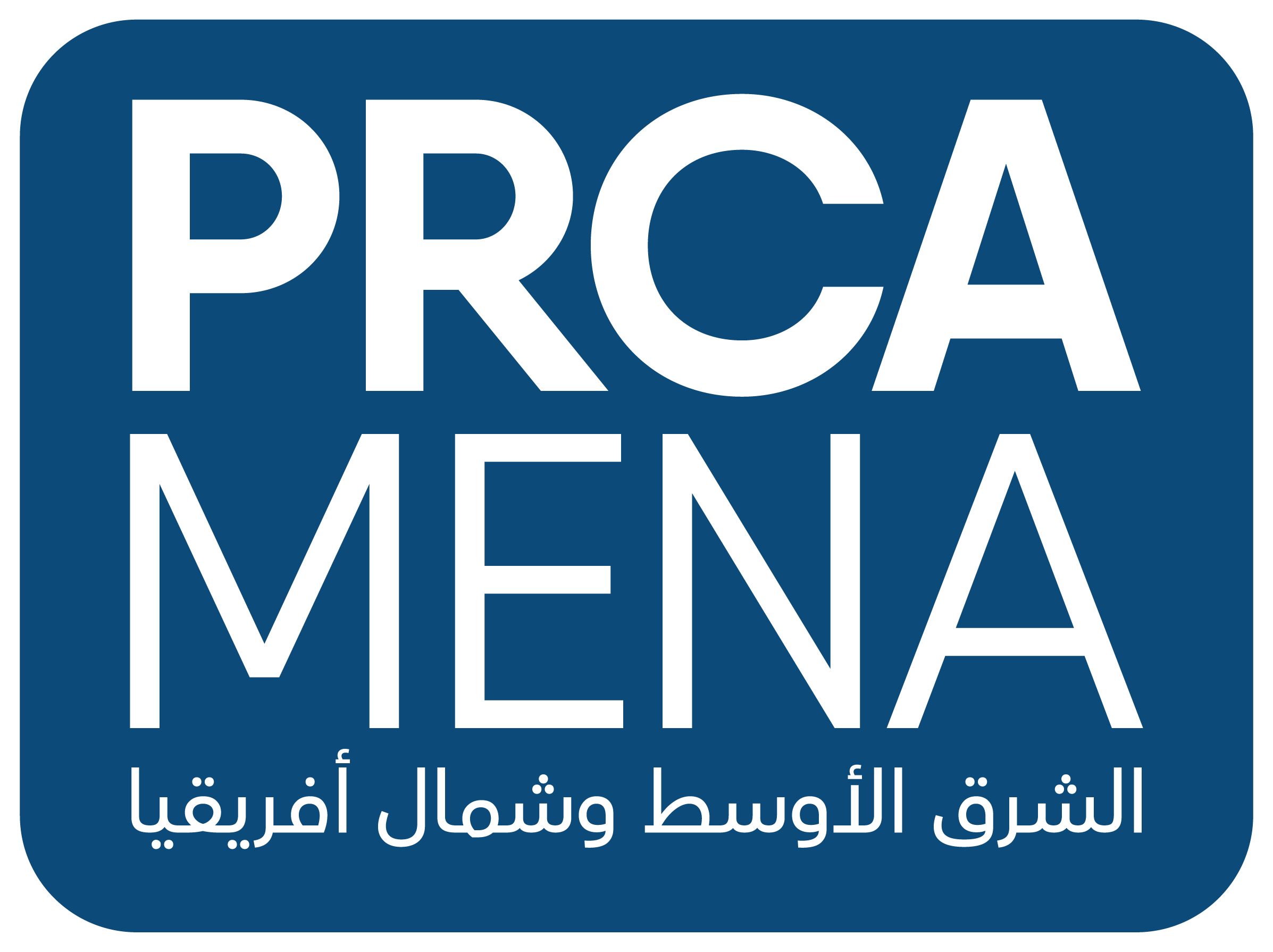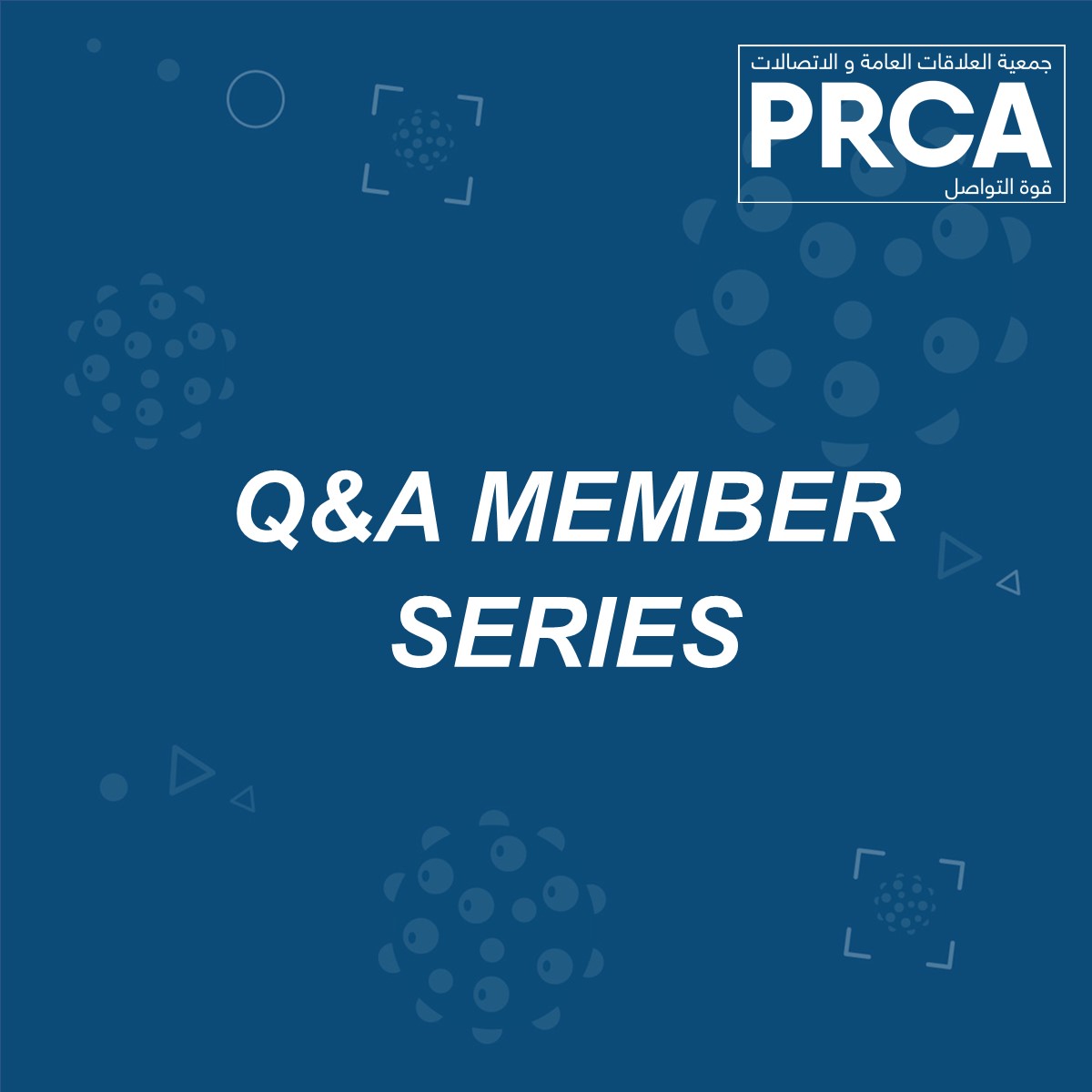COVID-19 Q&A MENA Series with Golin
The COVID-19 crisis has had a profound impact on public relations professionals across the world. Despite the ongoing uncertainty, communications are playing an essential role connecting stakeholders and helping organisations to make sense of their new environments. Messaging and communication have never been more critical to business.
This exclusive Q&A series spotlights the communications professionals behind the organisations working the COVID-19 crisis.
This week features answering the PRCA MENA Q&A series is with Yiannis Vafeas, Managing Director, GolinMENA.
1. How has the COVID-19 crisis affected you and your organisation?
The truth is that the whole world has been facing a new form of living and working, in the attempt to slow the spread of the virus. The emotional, psychological and socioeconomic impact is experienced in different ways, no matter how much we try to alleviate it. We are social animals and we work in a field where human connection is key.
Within a condition of isolation, we have all tried to excel in new ways of digital connection and I can safely say that it has worked to a certain extent. Digital transformation is happening at a pace that was never predicted. I am sure that this will help a lot in the post-COVID era.
From a human resources point of view, our key priority has been to work safely from home, while nurturing the sense of connection between us. There many different ways we have been using to energize our internal relations and sustain the sense of Golin belonging.
When it comes to business, the market dynamics are changing. Our specialty in crisis communications and Golin-owned digital tools of ‘relevance’, have definitely allowed us to offer services of critical importance during the pandemic. Being able to adjust and support our clients in every possible way is key to our success.
Just some days ago Golin was named Global Agency of the Year, by the PRWeek Global Awards, second time in a row! This is a reflection of the way our company has been leading the way in progressive PR, always with respect to our values, our employees, our clients, the media, and the industry. Genuine care is the secret, in my opinion, and this remains the key during any crisis!
2. How should businesses communicate with stakeholders during the current crisis? What are the key things to bear in mind?
Communicate frequently, with honesty and empathy. These are the basics we live by, but during recent times have become even more necessary. It is time to support not only clients, but also partners, media, and every stakeholder who has supported us during good and bad times.
3. How can organisations safeguard their reputation during this period?
This situation is a stress-test for organisations on how they remain true to their brand promise and purpose. Reputation should never be treated as ‘business as usual’. When organizations remain authentic to their “Why”, they manage to find their “How” in any given circumstance. It is absolutely our responsibility to support in this process and handhold organizations to be creative, proactive, and sustain their momentum.
4. Do you have any thoughts on how organisations ought to communicate with employees during the present crisis?
It is the collective sentiment that sustains an organisation through a storm. Employees are the front-line stakeholders of the organisation, and should be treated with honesty and care. In times of crisis the feeling of ‘uncertainty’ can be overwhelming. For that reason, empathy in communication with the team is an absolute necessity. Employees ARE the organization. Their mental, emotional, and psychological well-being determines the health of the organization.
5. Do you have any tips on how to protect and promote mental wellbeing amongst staff at this time?
Golin was early to call mental wellbeing into focus, and the on-ground application of this has been in many ways. We have no doubt that our people can work efficiently and effectively from anywhere, but are cognizant that people actually miss the office environment – as much as for the camaraderie and routine as for delivery of work. We communicate on a team call daily to sustain face-time.
A challenge that the region faces is the glorification of workaholism, and during this time, more and more people have seen the blurring of work time and personal time. It is important to ensure a healthy balance. What is critical to retain is the sense of togetherness and empower people with channels for collaboration and the tools to function effectively. This is a shared experience and I am sure that we will come out of this wiser.
6. Can you share any examples of organisations delivering positive community-led or social campaigns over the past couple of months?
Covid-19 has definitely brought the very altruistic and meaningful selves of so many organizations. All acts of giving should be appreciated and it would be unfair to value them based on quantity or magnitude. Many small organizations exerted themselves in supporting vulnerable groups. Big organizations from the region developed outstanding programs. We are fortunate to have experienced breakthrough initiatives and campaigns that have supported our communities.
7. In what ways (if any) will this crisis impact the way communications professionals work in the long-term?
The focus will shift back squarely to the message, rather than the medium. This has implications for our work with media and content creators, as much as our client interactions and business development activity.
As the message becomes the central focus of a campaign, the marker of impact shifts from the heft of the coverage report to the assurance that we are reaching the right audience and inspiring the right action. While it is easy to say that this is still some way away for our region, the fact is that the industry itself has been slow to lead this change. The experience of 2020 thus far could well be the tipping point for more planned, targeted, and relevant communications. This is actually an opportunity for a refreshed regional communications industry.
8. If you could share any advice with yourself before this crisis began, what would it be?
Invest in an office chair for home! Our team recently shared their thoughts on what they missed most about the office, it was the simple things like the office chair that people missed. To take a line from our blog, it is always the human response to a situation that makes all the difference.
The message for the pre-COVID me, the younger me, and the world in general is the same: This too shall pass.



